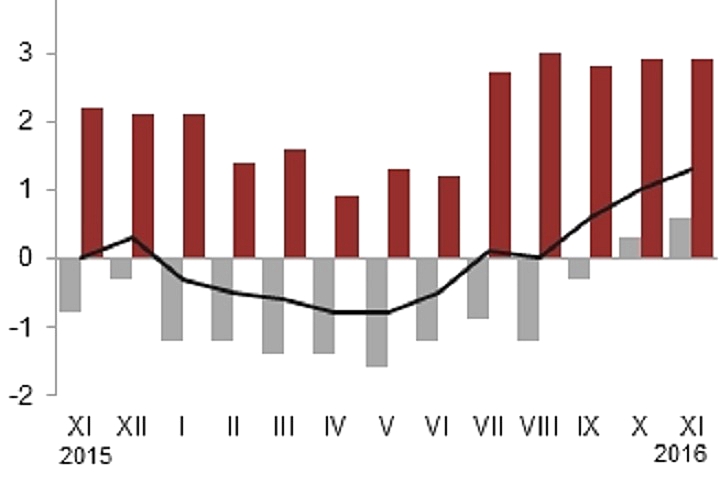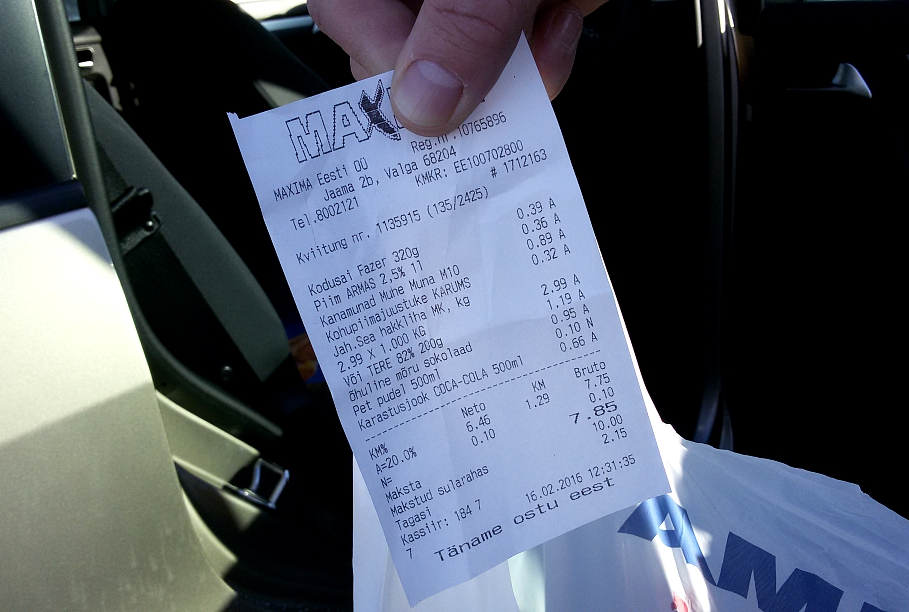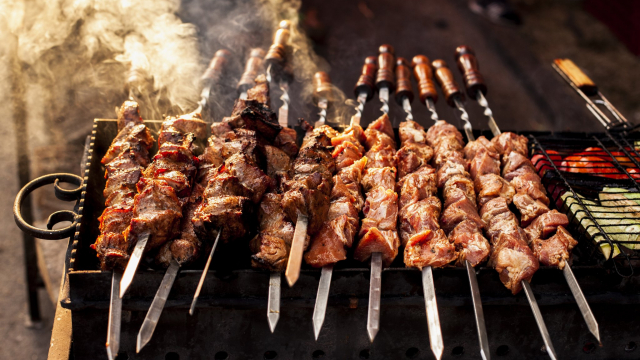Prices of goods grew by 0.6% and prices of services by 2.9%.
"Compared to November 2015, in November 2016 the greatest pressure on the price changes was put by the rise in prices of food and non-alcoholic beverages, goods and services related to transport, health care, recreation and culture, alcoholic beverages and tobacco products, as well as by the drop in prices of goods and services related to housing," the statistics office said.

Compared to October 2016, in November 2016 the average level of consumer prices rose by 0.2%. Prices of goods went up by 0.4%, while prices of services went down by 0.2%.
During the month, prices of food and non-alcoholic beverages went up by 1.2%. Milk, cheese and eggs had the most significant increasing impact on the price level. Rise was recorded in prices of fresh vegetables, fresh fruit, butter, dried, salted or smoked meat, sweets, meat preparations, olive oil, and coffee. Decline, in turn, was observed in prices of poultry, fresh or chilled fish, vegetable oil, and potatoes.
Commenting on the data Swedbank said: "For two months now prices of services and goods are moving in the same direction. Services’ prices rose by 2.9% year-on-year (yoy).
"However, weakening domestic pressures, namely, even slower annual wage growth in Q3, could reduce the pace of service price growth further on. Goods’ prices increased by 0.6% yoy as commodity prices are recovering. Currently oil price is in the spotlight. With the OPEC (and Russian) decision to cut oil production, the oil price reached $55 at the beginning of December, the highest level in a year and a half (it has reverted somewhat since then).
"Although OPEC decision sends a strong signal in attempts to balance supply and demand, some concerns persist. For example, within the OPEC, some countries (e.g. Libya and Nigeria) are exempt from production cuts. These countries and some non-OPEC countries most likely will not cut production; quite the opposite – increase it to some extent. In any case, inflation will rise at the beginning of next year due to base effects, i.e. oil price was extremely low at the beginning of this year. But if the oil price increases, it could put additional upside pressure on inflation.
"Average annual inflation will reach 0.1-0.2% while our forecast for next year’s inflation is 2.5%."






























